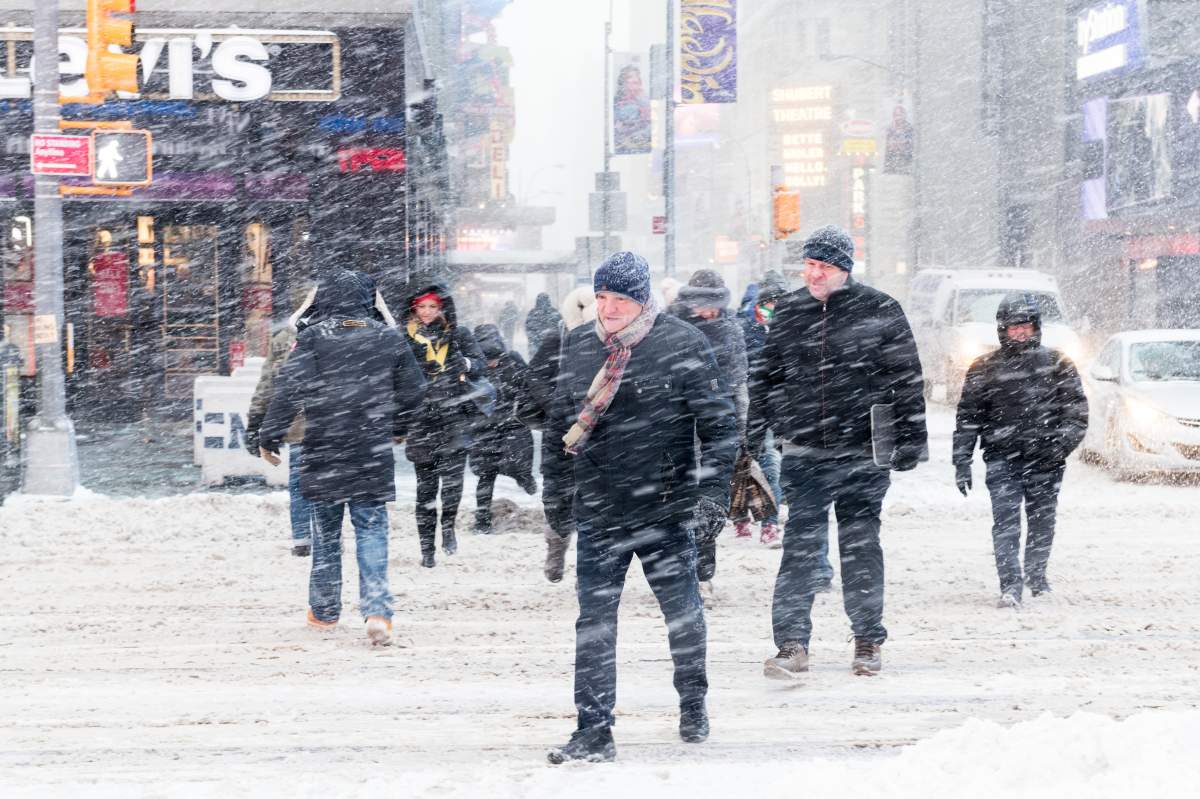If we have entered into a new period of global cooling, how would we know? That’s the question I put to climatologist Tim Ball on my show today.

Once upon a time, credible magazines used to be able to talk about the impact of solar cycles on the climate without screeches of “denier” being flung at them. This is not the case today, which is why I wonder if we might be overlooking some important scientific findings.
LISTEN: Climatologist Tim Ball on whether we should expect another mini ice age
Climate-related disasters cost U.S. record $306B in 2017: NOAA
Maybe because I was born in the 1970s and I grew up hearing scientists talk about both global warming and global cooling, I’ve always been interested in news stories about both.
In 1974, Time magazine published an article titled Another Ice Age? referencing “a particularly chilly and rainy spring” impacting Canada’s wheat belt and Newsweek began an article in 1975 discussing “ominous signs” of changing weather patterns threatening the global food supply– such as a two-week reduction in the growing season in England.

Get daily National news
Back in the 1970s, they were concerned about the unexpected persistence and thickness of pack ice around Iceland and the year-round ice in areas of Baffin Island in the Canadian Arctic, where it was once totally snow free.
A couple years ago, I interviewed Valentina Zharkova at Northumbria University, who said that because of changes in the earth’s magnetism there will be fewer sunspots and the earth may replicate the same conditions as previous mini ice ages.
For the record, Zharkova is not a denier; she thinks this gives humans a window to figure out how to reduce greenhouse gas emissions.
LISTEN: Valentina Kharkova discusses another potential mini ice age with Danielle Smith in 2016
WATCH BELOW: British singer Liam Gallagher voices melting snowman in climate change PSA

It appears other researchers in her field are convinced of the same thing: that global cooling began in 2015 and may last as long as 100 years.
So, the question remains, how would we know if the climate is cooling, even if only temporarily, and what impact would it have on us today?
Ball said this analysis has already been done. From the 1940s to the 1970s, the scientific community was so concerned about the possible disruption in food production and social unrest that the CIA wrote three papers about it.
There is historical evidence that global cooling is worse for humanity than global warming. Setting aside weird weather (which seems to accompany both warming and cooling conditions), a warmer climate extends the growing season and allows us to produce more food.
A cooler climate results in less heat during the summer months and an earlier frost, which causes us to produce less food. Ball said many of the mass movements of people throughout history have been in response to a decline in the local food supply.
It may well be that modern food production, GMOs and global trade would allow humanity to weather a cold spell better today than at any time in human history.
Is an ice age really imminent? That’s for scientists to figure out. But we can’t be so narrowly focused on only one part of the scientific discussion that we miss seeing the bigger picture.
- Alberta Premier Danielle Smith to address immigration during province-wide address
- Rockslide closes Highway 93 between B.C. and Alberta until at least noon on Thursday
- No charges for Calgary police in shooting death of man who strapped grenade to chest
- Provinces are bracing for record deficits. What’s causing budgets to see red?












Comments
Want to discuss? Please read our Commenting Policy first.